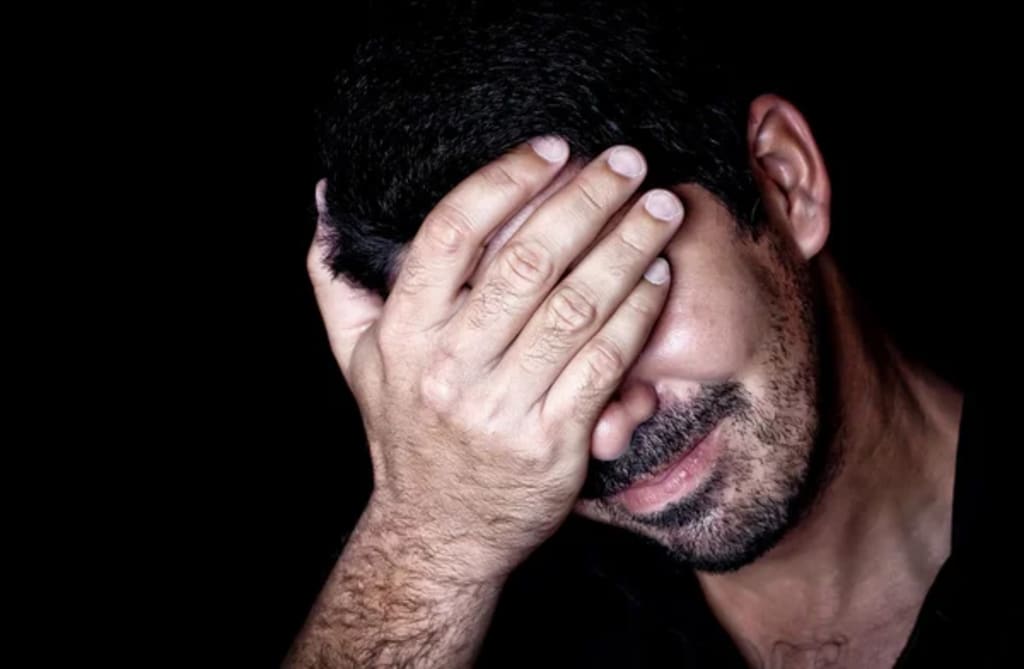Misfortune and the Common Man
Tragedy and the Everyday Person

In this age not many misfortunes are composed. It has frequently been held that the need is because of a scarcity of legends among us, or, in all likelihood that cutting edge man has had the blood coaxed out of his organs of conviction by the suspicion of science, and the brave assault on life can't benefit from a mentality of save and caution. For some explanation, we are frequently held to be underneath misfortune or misfortune above us. The unavoidable end is, obviously, that the terrible mode is obsolete, fit exclusively for the exceptionally positioned, the rulers or the royal, and where this confirmation isn't made in such countless words it is most frequently suggested.
I accept that the everyday person is as able a subject for misfortune in its most noteworthy sense as lords were. Apparently this should be clear in the illumination of current psychiatry, which puts together its examination with respect to classific definitions, like Oedipus and Orestes buildings, for cases, which were established by regal creatures, however which apply to everybody in comparative profound circumstances.
All the more basically, when the subject of misfortune in workmanship isn't at issue, we never wonder whether or not to credit to the all around put and the magnified exactly the same mental cycles as the modest. Lastly, on the off chance that the worship of unfortunate activity were genuinely a property of the great reared character alone, it is unfathomable that the mass of humanity ought to treasure misfortune over any remaining structures, not to mention be fit for grasping it.
When in doubt, to which there might be exemptions obscure to me, I think the disastrous inclination is evoked in us when we are within the sight of a prepared person to set out his life, in the event that need be, to get one thing-his feeling of individual respect. From Orestes to Hamlet, Medea to Macbeth, the basic battle is that of the individual endeavoring to acquire his "legitimate" position in his general public.
Some of the time he is one who has been uprooted from it, in some cases one who looks for t achieve it interestingly, yet the critical injury from which the unavoidable occasions winding is the injury of outrage and its predominant power is anger. Misfortune, then, at that point, is the outcome of a man's all out impulse to even handedly assess himself.
In the feeling of having been started by the legend himself, the story generally uncovers what has been referred to his as "unfortunate defect," a weak that isn't particular to fabulous or raised characters. Nor is it fundamentally a shortcoming. The defect, or break in the characters, is actually nothing-and need be nothing, however his innate reluctance to stay latent notwithstanding what he imagines to be a test to his poise, his picture of his legitimate status. Just the detached, just the people who acknowledge their parcel without dynamic counter, are "impeccable." The majority of us are in that class.
However, there are among us today, as there generally have been, the people who act against the plan of things that debases them, and during the time spent activity all that we have acknowledged out of dread of cold-heartedness or obliviousness is shaken before us and inspected, and from this all out attack by a person against the apparently steady universe encompassing us-from this complete assessment of the "unchangeable" climate comes the fear and the apprehension that is traditionally connected with misfortune. More significant, from this complete addressing of what has recently been unchallenged, we learn. What's more, such a cycle isn't past the everyday person. In upheavals all over the planet, these beyond thirty years, he has shown over and over this inward unique of all misfortune.
Emphasis on the position of the lamentable legend, or the purported respectability of his personality, is actually yet a gripping to the outward types of misfortune. On the off chance that position or honorability of character was essential, it would follow that the issues of those with rank were the specific issues of misfortune. However, certainly the right of one ruler to catch the space from another no longer raises our interests, nor are our ideas of equity what they were to the brain of an Elizabethan lord.
The quality in such plays that shakes us, notwithstanding, gets from the fundamental anxiety toward being dislodged, the debacle intrinsic in being torn away from our picked picture of what and who we are in this world. Among us today this dread areas of strength for is, maybe more grounded, than it at any point was. Truth be told, the everyday person realizes this dread best.
Presently, in the event that misfortune is the result of a man's complete impulse to assess himself evenhandedly, his obliteration in the endeavor places an off-base or a fiendish in his current circumstance. Furthermore, this is unequivocally the profound quality of misfortune and its illustration. The disclosure of the ethical regulation, which is what the illumination of misfortune comprises of, isn't the revelation of some theoretical or magical amount.
The shocking right is a state of life, a condition wherein the human character can blossom and acknowledge itself. Some unacceptable is the condition which stifles man, distorts the streaming out of his affection and imaginative nature. Misfortune edifies and it must, in that it focuses the brave finger at the adversary of man's opportunity. The push for opportunity is the quality in misfortune which magnifies. The progressive addressing of the steady climate alarms. Not the slightest bit is the everyday person suspended from such contemplations or such activities.
Found in this light, our absence of misfortune might be to some extent represented by the turn which current writing has taken toward the simply mental perspective on life, or the absolutely humanistic. If every one of our agonies, our outrages, are brought up inside our brains, then, at that point, all activity, not to mention the courageous activity, is clearly inconceivable.
Furthermore, in the event that society alone is liable for the squeezing of our lives, the hero should needs be so unadulterated and impeccable as to compel us to deny his legitimacy as a person. From neither of these perspectives could misfortune at any point determine, essentially in light of the fact that neither addresses a reasonable idea of life. Regardless of anything else, misfortune requires the best appreciation by the essayist of circumstances and logical results.
No misfortune can thusly come about when its creator fears to address without question, everything, when he respects any foundation, propensity or custom as being either never-ending, unchanging or inescapable. In the shocking perspective the need of man to entirely acknowledge himself is the main fixed star, and whatever fences his temperament and brings down it is ready for assault and assessment. Which isn't to say that misfortune should teach upset.
The Greeks could test the eminent beginning of their methodologies and get back to affirm the rightness of regulations. What's more, Occupation could confront God out of frustration, requesting his right and end in accommodation. However, briefly everything is in suspension, nothing is acknowledged, and in this drawing and destroying of the universe, in the actual activity of so doing, the person gains "size," the sad height which is deceptively connected to the regal or the high brought into the world in our brains. The commonest of men might take on that height to the degree of his ability to toss all he has into the challenge, the fight to get his legitimate spot on the planet.
There is a misinterpretation of misfortune with which I have been struck in a large number of surveys, and in numerous discussions with journalists and perusers the same. It is the possibility that misfortune is of need unified to cynicism. Indeed, even the word reference says nothing more regarding the word than that it implies a story with a miserable or despondent consummation. This impression is so immovably fixed that I nearly wonder whether or not to guarantee that in truth misfortune suggests more hopefulness in its creator than does parody, and that its end-product should be the support of the passer-by's most brilliant assessments of the human creature.
For, assuming it is consistent with express that basically the sad legend is expectation after guaranteeing his entire due as a character, and on the off chance that this battle should be complete and without reservation, it consequently shows the indestructible will of man to accomplish his humankind.
The chance of triumph should be there in misfortune. Where poignancy rules, where tenderness is at last determined, a person has faced a conflict he could never have won. The despicable is accomplished when the hero is, by righteousness of his stupidity, his cold-heartedness, or the very air he radiates, unequipped for wrestling with a much unrivaled power.
Feeling genuinely is the mode for the doubter. However, misfortune requires a more pleasant harmony between what is conceivable and what is unthinkable. Furthermore, it is interested, albeit enlightening, that the plays we respect, a large number of hundreds of years, are the misfortunes. In them, and in them alone, lies the conviction hopeful, maybe, in the perfectibility of man.
The time has come, I think, that we who are without lords, took up this splendid string of our set of experiences and followed it to the main spot it might potentially lead presently the heart and soul of the typical man.
About the Creator
Enjoyed the story? Support the Creator.
Subscribe for free to receive all their stories in your feed. You could also pledge your support or give them a one-off tip, letting them know you appreciate their work.






Comments
There are no comments for this story
Be the first to respond and start the conversation.